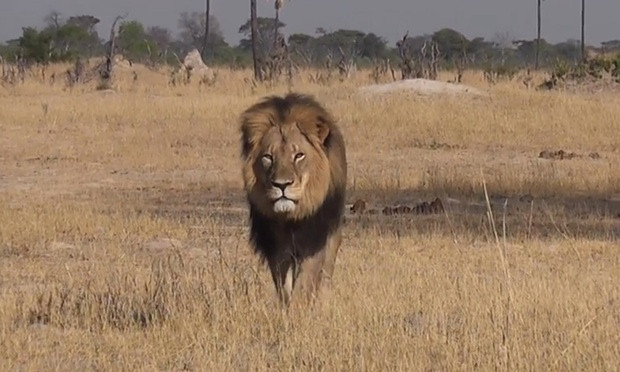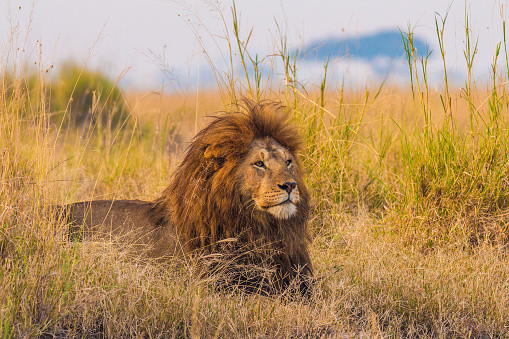How can trophy hunting promote lion conservation and make sure 'Cecil the Lion' never happens again?
A new report has found that well-managed and transparent trophy hunting could help conservation.
The death of Cecil the lion in June 2015 at the hands of American trophy hunter Walter Palmer caused an international outcry. In the UK, it prompted the government to commission a report to investigate how it could enhance lion conservation and whether it should review the rules for importing animal trophies into the country.
The report, written by Oxford University's Professor David Macdonald, has been criticised by some wildlife charities for concluding that when trophy was well-regulated and transparent, it had the potential to contribute to lion conservation.
Prof Macdonald, who is the Director of the Wildlife Conservation Unit, is however not the only scientist to reach this conclusion. A briefing paper by the IUCN published last April also highlighted that trophy hunting could have a number of conservation benefits, if it was well-managed and offered opportunities to local communities.
Both documents condemn the poorly conducted and unsustainable hunting that takes place in many corners of the globe – and of which Cecil the lion is perhaps the most dramatic example. But rather than banning trophy hunting altogether– for example by stopping all animal trophy imports to the EU and the UK – they point out it might be interesting to think about how to promote sustainable hunting practices.
Incentives for wildlife preservation
Lions are among the most iconic African mammals but they have undergone a devastating decline in recent years. The global lion population is estimated to have decreased by approximately 42% over the past two decades, with fewer than 20,000 animals now remaining.
It is important to note that the impact of trophy hunting on conservation varies greatly depending on whether the practice is well-regulated and whether it involves local communities.
There is evidence that well-regulated trophy hunting can benefit wildlife, as it may financially benefit local residents and the authorities – thus providing an incentive for local residents to protect wild animals like lions and their natural habitat.

"The most fundamental benefit of trophy hunting to lion conservation is that it provides a financial incentive to maintain lion habitat that might otherwise be converted to non-wildlife land uses", the report confirms.
It may thus be crucial to promote lion conservation. The most important threat to lions today is not trophy hunting. More problematic are habitat loss, loss of prey base and conflict with people over livestock. These issues are unlikely to go away as climate change intensifies and human populations continue to expand – leading to wildlife territories being converted for human use.
Increasing local populations' tolerance for lions by making sure they reap some benefits from trophy hunting could help conservation. It could reduce the number of lions killed by humans to protect cattle by offering them a form of compensation. But to achieve this, well regulated trophy hunting that includes the participation of these local communities is necessary.

In given regions, part of the income from trophy hunting funds conservation strategies, including anti-poaching operations. More than $200m dollars annually are generated by trophy hunting. The Macdonald report points out that trophy hunting could be a driving force for conservation, if measures were taken to maximise the part of this revenue made available for conservation projects.
In some cases, stopping trophy hunting may even be detrimental to conservation efforts if it happens too quickly and without coming up with ways to make sure local populations retain benefits and conservation projects remain funded.
The bottom line is, trophy hunting may help, but only if the programs are well-monitored, well established, and if they promote sustainable practices and education of local populations. As the report concludes, trophies should only be imported from areas that are sufficiently large to offer conservation benefit to lions and where their populations are demonstrably well-managed. The hunting of Cecil the lion did not respect these criteria.
© Copyright IBTimes 2025. All rights reserved.






















